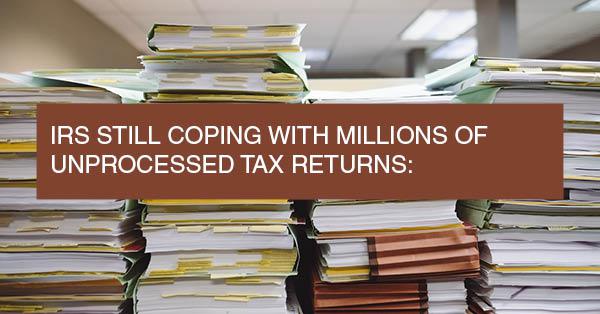IRS STILL COPING WITH MILLIONS OF UNPROCESSED TAX RETURNS:

The Internal Revenue Service had 4.4 million unprocessed individual returns received this year as of October 28, including tax year 2021 returns and late-filed returns from the prior year, as IRS funding has become more of an issue during election season.
The IRS reported in the latest update this week on the status of its mission-critical operations during COVID-19 that of those 4.4 million unprocessed returns, 1.9 million require error correction or other special handling, while 2.5 million are paper returns still waiting to be reviewed and processed. The work typically doesn't require the IRS to correspond with taxpayers, but does require special handling by an IRS employee so, in those cases, it's taking the IRS more than 21 days to issue any related tax refund.
"I look at the numbers and see millions of taxpayers that are still waiting for their returns to be processed," wrote National Taxpayer Advocate Erin Collins in a blog post Thursday.
She noted that as of October 21, the IRS had approximately 3 million individual returns and over 4 million business returns awaiting initial processing, as well as around 2 million amended individual and business returns.
"In total, it has over 6.3 million returns in suspense, with about 2 million in unpostable status, 1.1 million processing rejects, a half-million in error resolution, and nearly 3 million still waiting to be worked for potential identity theft. Most math errors involved reconciliation of the Recovery Rebate Credit or the Child Tax Credit, and through Oct. 10, the IRS had sent nearly 14 million notices mostly concerning those issues. Regardless of the IRS' definition, none of the above taxpayers will see the IRS as 'healthy' until their return is worked."
There are also delays in processing taxpayer correspondence, and currently, the IRS has around 4.5 million pieces of correspondence awaiting processing, Collins noted. Many of the documents are scheduled to be worked on by IRS customer service representatives who have to split their time during filing season between answering phones and processing amended returns and correspondence.




